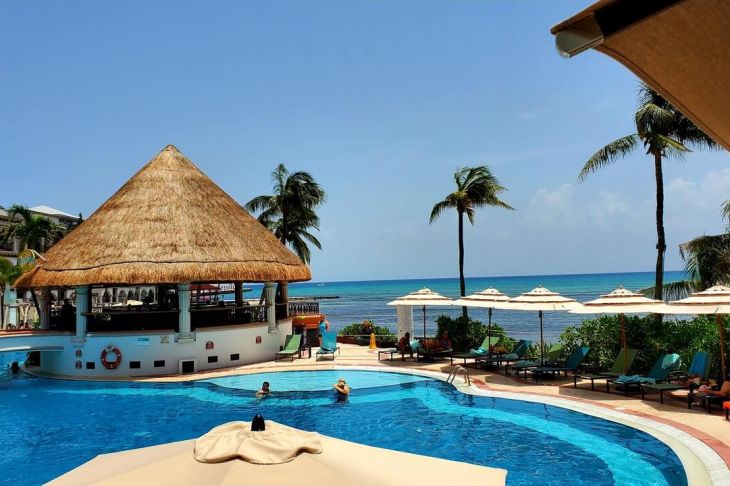
Hotels aren't your only option when travelling. Finding a place to stay is usually one of the more expensive aspects of travelling. These alternatives are frequently less expensive and can provide unique experiences.
For your next vacation, check out these fantastic alternatives to hotels.
Couchsurfing
Couchsurfing is not a new concept; people have been doing it for centuries, but an app has given it a modern twist.
Couchsurfing is a travel app that matches travelers with hosts who are willing to welcome them into their homes. What's the best part? It's completely free of charge.
Hosts are not permitted to demand payment, and the only form of gratitude expected is a kind gesture. As a token of appreciation, prepare a meal, bring a gift, or take your host out to lunch.
Fill out your profile and look for the city you want to visit. Look through the hosts' profiles and message the ones you want to stay with.
To keep your options open, it's a good idea to message 5 or more potential hosts.
When Couchsurfing, here's how to stay safe:
Couchsurfing has taught travelers some basic safety skills. I've summed them up for you here:
Examine each profile thoroughly:
Make sure you read everything and don't skip any details.
Trust your instincts:
Trust your gut if something doesn't feel right. Take your personal safety very seriously. If you're not comfortable, move on.
Have a backup plan:
Things don't always go as planned, so have a backup plan or at least an idea in case something goes wrong.
Learn about the culture of the area:
Gender norms, religions, and customs may differ significantly from those in your home country. Learn about the country's culture and safety recommendations.
Outside of the app, never communicate:
Only give out your phone number and email address after you've met someone and are comfortable doing so. Couchsurfing's safety team can resolve issues faster by keeping communication in the app.
Recognize your limitations:
Drink and party responsibly to keep yourself safe.
Write a review:
Share your storey with others so they can make educated decisions.
Any negative experiences should be reported:
You can make a confidential report and assist other travelers in staying safe.
Hostels
Hotels can be expensive, so hostels are a great alternative. They're ideal for budget travelers, quick visits, and backpackers.
Guests renting a bed in a dormitory-style room and sharing a kitchen and bathroom with other guests distinguishes hostels from hotels.
Hostels vary in size and type, ranging from large mixed-gender dormitory rooms (for example, 10+ people) to private rooms.
Our hostel in Sevilla, Spain, had a single-sex room with two bunk beds. Fortunately, there were only three of us and the fourth bed was empty for the night. Each of us had our own bed, reading light, and clothing locker.
Many hostels host social events such as bar crawls and night-time socials, so don't be afraid to make friends with other travelers.
There are hostels dedicated to having a good time and partying. The Pink Palace in Corfu, Greece, offers excursions such as beer pong on boats and is well-known for its private nightclub!
Hostel etiquette suggestions
- Shower shoes and a towel are required. (It'll be a good thing you did.)
- Invest in a lock or two.
- Bring headphones to drown out the background noise.
- Your confirmation sheet should be printed.
- Pack your belongings at night if you have an early flight to avoid waking others.
- Visit Hostelworld.com for more information. It's a website dedicated to assisting travelers in their search for hostels all over the world.
- Make new friends with other tourists.
Airbnb
Airbnb is best known for its low prices and diverse selection of accommodations. When I go on vacation, it's one of my favorite apps to use for finding vacation rentals. The homes' privacy and individuality outweigh the lack of hotel amenities and service.
If you're sick of hotel rooms, look into renting a home on Airbnb and living like a local.
Choose a low-cost option or get a group of friends together, split the costs, and rent a luxurious home!
HomeAway
HomeAway is similar to Airbnb, except that it only rents out entire homes rather than individual rooms.
In Venice, I used HomeAway, and the only drawback is that there is no in-app translation option when communicating with hosts. It took me longer to copy and paste the conversation into Google Translate.
Boat Rentals
Consider spending your next vacation on the water, gliding along in a sea of blue that stretches as far as the eye can see...
You can rent houseboats, yachts, and floating homes for your next vacation if this sounds idyllic.
While there are some opulent options, I found some that start at $65 per night, which is less than some hotels.
What to Know Before Renting a Boat
- Renting a houseboat does not require credentials, but renting a yacht does.
- Make sure your rental is in good working order.
- When out on the water, it's a good idea to bring plenty of bottled water with you.
- VRBO has a wide range of rental options to suit any budget.
WorkAway
Workaway connects travellers from all over the world who want to volunteer or need a place to stay with hosts who need assistance.
A workawayer is defined as "a traveller willing to help out for a few hours a day in exchange for a place to stay and food to eat," according to their website. (Some hosts also provide a stipend.)"
Work at local schools, farms, house-sit, and even work on sustainable projects are all possibilities.
Hosts decide how long the volunteer will be needed, which can be anywhere from a few days to several months.






